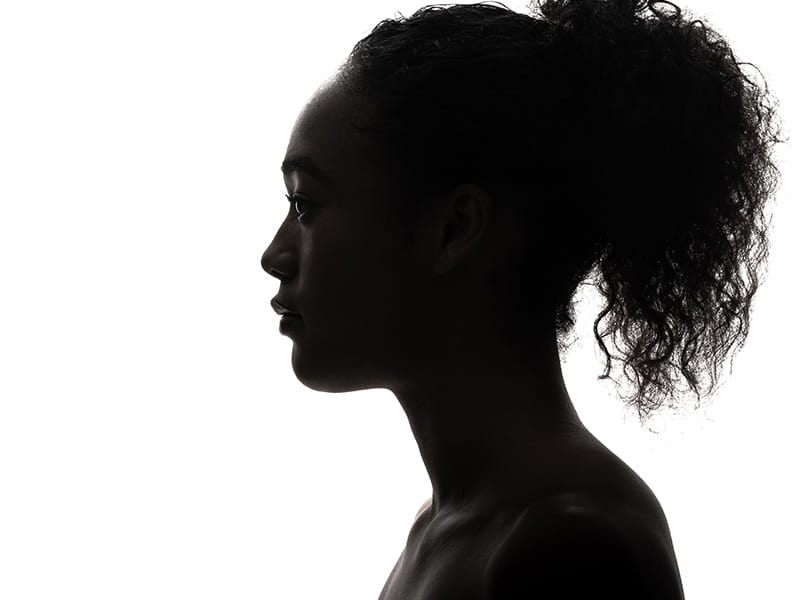There have been a lot of events lately that put the challenges of Black motherhood at the top of my mind: Black Maternal Health Week in April, Mother’s Day, Women’s Health Month, and, of course, the troubling SCOTUS leak of Roe v. Wade’s potential repeal.
Motherhood, in its ideal form, should largely be a joyous experience. But the reality is that in our country, the maternal support just isn’t there, which makes it an exceptionally challenging time for many. And now, women are being told that we cannot expect autonomy over our own bodies. The struggles that come with womanhood and motherhood should be at the forefront of conversations, especially because those struggles are compounded for Black mothers and birthing people.
Black Maternal Health & Mortality
The challenges of Black motherhood start in pregnancy. It’s estimated that Black women are three to four times more likely than white women to die during pregnancy or childbirth. That is a staggering, horrifying statistic, especially when you consider that the United States already has the highest maternal mortality rate among developed or industrialized countries. In Washington, D.C., Black birthing people accounted for 90% of birth-related deaths, though they accounted for only half of the total births.
This problem is pervasive for Black mothers throughout the American healthcare system, it doesn’t matter whether you’re educated or not, poor or wealthy (Beyoncé and Serena Williams have both brought awareness to the challenges and risks of Black pregnancies). Systemic racism in the American medical system means that Black women are up against prejudices at a time when they are most vulnerable, and the results can be deadly.
According to an article in USAToday, “experts say the racial disparity stems from a confluence of factors including systemic racism and inequity, bias in medicine and a lack of health resources.” Black women are less likely to have health insurance and may live in underserved communities where the hospitals and medical care are not as good as they are in wealthier areas, or where struggling hospitals are being divested.
Furthermore, as of 2018, Black women were paid just 63 cents to the dollar earned by white men. Less financial stability means having to choose between essentials like rent and healthcare, which creates issues for prenatal care and can result in other underlying problems that may go undiagnosed. As such, Black women face higher rates of diseases and conditions like diabetes and hypertension that negatively impact childbirth.
Then there is the matter of the treatment of Black women within the health system. Many do not feel heard, believed, or respected when they describe their pain or ailments. Studies show that after caesarian sections, Black women do not receive the same level of pain management as white women.
This sort of treatment, combined with the stressors of living as a Black woman in a racially-charged society, can deepen ill health effects. Studies from Kent State University found “that PTSD among expectant Black mothers was three to five times higher than in non-Black pregnant women.”
The SCOTUS Leak
It’s impossible to write this piece and not address the shocking leaked draft opinion that reveals SCOTUS is set to overturn Roe v. Wade, essentially eliminating nearly half a century of precedent and rights. There is so much appalling about this move and the treatment of women as second-class citizens. We need to acknowledge how this will undeniably impact mothers in underserved communities, particularly Black mothers.
As discussed earlier, Black women face the highest maternal mortality rates, and now they may be forced to carry pregnancies to term. In addition to the threat to their health, this could drive already poor women deeper into poverty and dangerously widen the wealth gap.
Across the United States, Black women receive a third of all abortions. A report from PBS cites findings from the Kaiser Family Foundation: “When it comes to the effect on minorities, the numbers are unambiguous. In Mississippi, people of color comprise 44 percent of the population but 81 percent of women receiving abortions.”
Traveling to another state to receive an abortion is not an option available to many women in places that might soon outlaw abortion because of fast-moving trigger laws. It requires time off work, sourcing childcare, gas and hotel charges, and then the cost of the procedure itself. And while birthing people can enroll in Medicaid during pregnancy, that financial support ends as soon as childbirth does.
Black Motherhood Beyond Pregnancy
Whether it’s maternal morbidity, abortion access, or just mothering in general, there is an imbalance of health equity for Black mothers. And like so many other things, the COVID-19 pandemic made matters worse. With children at home from school, many working Black mothers found themselves unable to balance their jobs and childcare.
According to Brookings, a public policy nonprofit, more than two-thirds of Black mothers are their family’s breadwinners, which means stopping work to care for a child is an unaffordable option. They’re often doing it on their own, with almost 50% of Black children being raised by a solo mother, as opposed to 17% of other children.
Black mothers have to bring up their children, on top of these other challenges, knowing that they will be living in a culture of racism and white supremacy. We can only do so much to protect our children from these harsh realities. I feel this fear every day as a mother, particularly as the mother of a Black Autistic son.
Supporting Black Mothers
Black Maternal Health Week was observed in April, and during that week the Biden administration and Vice President Kamala Harris released a proclamation in support of Black mothers. In it, they outlined various measures to help address Black maternal morbidity — the majority of these deaths are heartbreakingly preventable. However, with the news surrounding Roe v. Wade, the matter is more urgent than ever.
Listen to Black mothers, believe their experiences and their pain. Address systemic racism in our healthcare system, make healthcare, in general, more accessible and affordable. Codify Roe v. Wade and guarantee bodily autonomy for women. And, critically, address the factors in our country that negatively impact maternal healthcare — poverty, housing insecurity, violence, and racial inequality.
About the Author
AREVA MARTIN is one of the nation’s leading voices for Autism advocacy. An award-winning attorney, advocate, legal and social issues commentator, talk show host, and producer, she is a CNN/HLN legal analyst, former co-host of The Doctors and Face the Truth, and a regular contributor on Good Morning America, ABC World News Tonight, and Dr. Phil. She currentlyhosts The Special Report with Areva Martin and is the Host and producer of a weekend radio talk show, Areva Martin Out Loud, on KBLA AM 1580. A Harvard Law School graduate, Martin founded Martin & Martin, LLP, a Los Angeles–based civil rights firm, and is the CEO of Butterflly Health, Inc., a mental health technology company.



